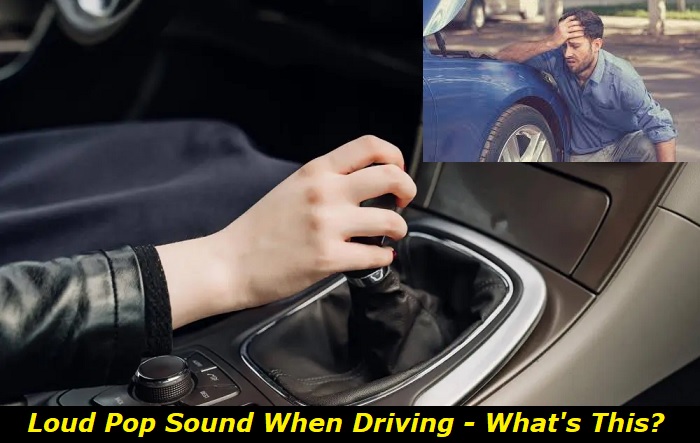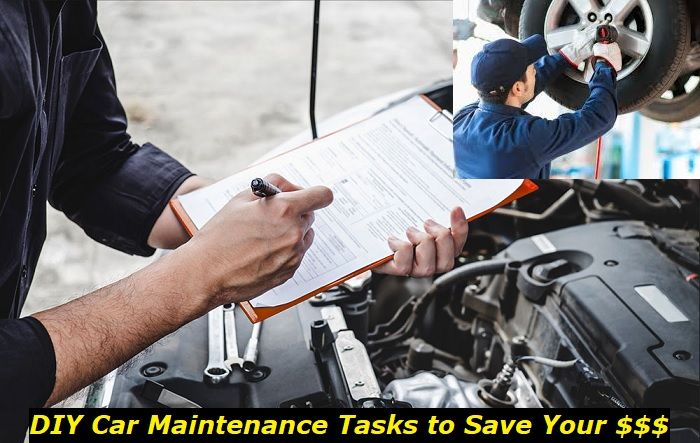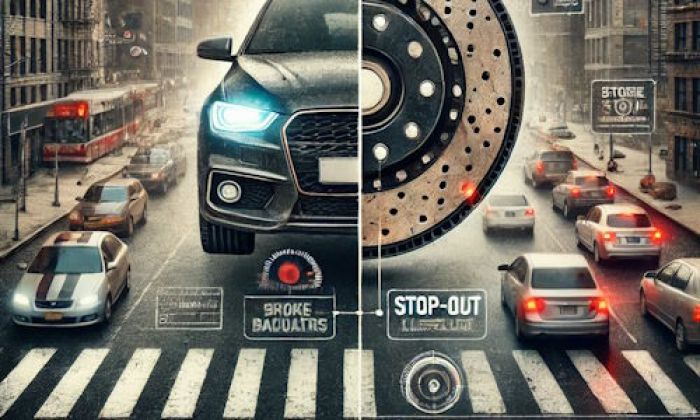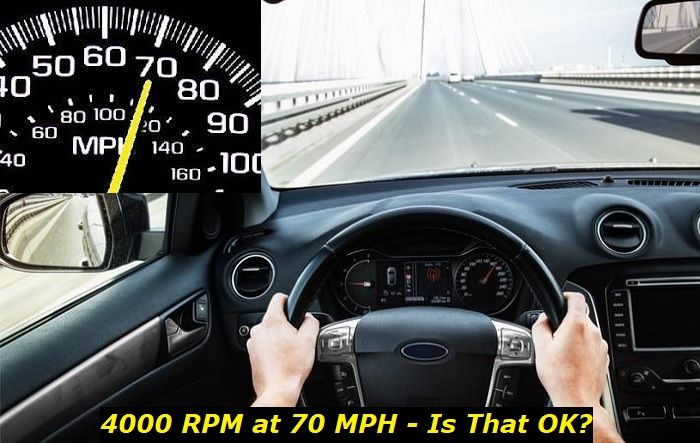What Causes a loud pop sound while driving? The most common cause of this problem is a damaged CV joint. This pop sound is more prominent when cornering or turning the vehicle. However, the sound is not limited to a damaged CV joint, as there are other factors that could cause this problem. Some of these include inaccurate air-fuel mixture, tire issues, worn-out tie rods, etc.
Engine noises highlights
- Level of importance:High
- Commonreasons:All kinds of various problems, hard to list promptly
- DIY inspection:Possible but may be complicated
- DIY repair:Impossible, in most cases
- Price for repair:$150 - $1,000
- Can you drive?Usually, yes
- Ways to fix:Locate the source for the sound and repair the system that needs help

Causes of Loud Pop Sound While Driving
Hearing a loud pop sound while driving is a common sign that you have a damaged CV joint. however, the sound is not limited to this problem. There are also other causes that are associated with a loud pop sound. We will discuss all of these below.
1) Damaged CV Joints
When the Constant Velocity Joint is worn out, the ball bearing deteriorates and will cause a popping sound when it moves to a certain point. This is usually caused by poor lubrication or normal wear due to heavy miles.
A CV Joint connects the wheels of your vehicle to the axles and transmission. You can find this component at the end of the drive shafts.
In addition, the CV Joints have the responsibility of transmitting power from the drive shaft to other components at a stable speed irrespective of the turning angle of the steering. It is able to do this thanks to its mechanical structure that gives way to free rotation due to parts like the ball bearing.
Once the ball bearing is damaged, the balls will continue to hit each other, causing an obvious popping sound, especially when cornering.
2) Inaccurate with Fuel Mixture
For every engine type, there is a specific air-fuel ratio dictated by the vehicle's computer system. The ECU is able to get this exact ratio thanks to the data received by various sensors about the condition of the engine and what it needs at the moment.
When there is more fuel than air going into the engine, this means that it is running rich. Once this happens, the combustion process will slow down. This then affects the ignition timing, as the exhaust valves open as the fuel mixture is still burning, resulting in an explosion, which is the popping sound you hear.
3) Tire issues
A popping sound can also be a result of a difference in the tire pressure of each tire or a difference in size. This will be more prominent when cornering or turning the wheels of the vehicle.
There is a recommended PSI for your tires when inflating. Notice that each of these tires has the same air pressure, and it is for a reason. This ensures they all have even wear and gives the vehicle proper handling, especially when turning the steering wheel. '
You can expect the same thing with the size of the tires. They all have to be the same. A difference in their sizes means uneven wear and bad handling.
4) Worn-out tie rod
The tie rod of a vehicle can get damaged or worn out; when this happens, the part becomes loose. This creates a space for the part to move around and collide with other components, causing a popping sound.
A tie rod is an important part of the steering that links the steering rack to the arm. At the end of this part, there is a ball and socket outer. What this does is allow the wheel to move freely at all times, which also grants the suspension free movement ( Up and down).
As you continue to use your vehicle under different conditions, the outer ball and socket will begin to slack and produce noise.
5) Damaged struts
A damaged strut is another cause of loud pop sounds while driving. This is because a part of the strut, like the mount, does not function the way it should.
The strut is a part of the suspension system of a vehicle, and it functions as the upper ball joint and upper control joint, like in conventional suspensions. It combines a shock absorber and a coil spring into one section and is then mounted at the front-end chassis of many FWD vehicles.
The basic function of the strut is to support the weight of the vehicle while trying to absurd the surface impact while driving to prompt a smoother ride.
When a part of the strut is damaged or worn, the mount becomes quite difficult to rotate, especially when turning the steering wheel while driving. This causes the part to bind and release, causing the popping sound.
6) Exhaust issue
Exhaust problems, which include loose pipes or mufflers, can cause a popping sound due to some types of damage. An issue like leaks could cause unwanted air to escape into the engine, which then disrupts the combustion process.
The exhaust system basically collects gasses from the engine as a result of the combustion process, reduces its harmful substances, and then disposes of them.
However, leaks in these components mean there is space for unwanted elements to escape into the engine. When this happens, the oxygen level becomes high, leading to a larger amount of unburned fuel escaping the combustion system.
The unburnt fuel is later ignited in the exhausts, and it creates a popping sound when done.
7) Worn drive belt or tensioner
When the drive belt is loose, it hits other parts of the engine, which can cause a pop sound. This is usually a result of a damaged or nonfunctional tensioner.
The belt is an important component that helps transmit power from the engine to the other important parts like the water pump and alternator. However, this component relies on the tensioner for proper pressure to be able to function correctly.
When the tensioner is damaged, the belt becomes very loose and will not be able to carry out its normal function. As the engine works, the loosened part tries to rotate, it hits other components, causing a popping sound.
How to Troubleshoot Loud Pop Sound While Driving?
You can diagnose the loud pop sound of your vehicle easily if you have the right tools to do so. Instruments like chassis ear can locate where the sound is coming from while driving.
In most cases, the loud pop sound is a result of damaged CV joints. How, then, do you troubleshoot a problem like this? Well, it is easy.
First, shift your gear to reverse and proceed to turn the wheel of the vehicle in any direction as far as possible. Once done with that, hit the throttle pedal.
After doing that, if the sound becomes more significant, then you may need to have the CV Joint replaced immediately. The replacement may require mechanical knowledge to avoid further damaging other parts.
However, if the popping sound is not due to a damaged CV Joint, this is where a chassis ear comes into play. The Chassis ear is designed to perform diagnosis on your vehicle based on emanating noise. It comes with microphones that can be attached to different parts of the car.
To get the test started, attach the tool's microphone to potential areas of the vehicle that the sound could be coming from. You can place it on the tires, engine close to the tension belt, exhaust pipes, and more.
Drive the vehicle and test and listen for the popping sounds. Once you find where the sound is coming from, you can then carry out an appropriate fix.
If you suspect the issue could be due to an inaccurate air-fuel mixture, then a diagnostic tool could be used. Scan the vehicle for Trouble codes related codes and have them fixed. You can also carry out an air-fuel ratio sensor diagnostic.
How much is it to fix Loud Pop Sound While Driving?
Fixing a loud pop sound in your vehicle depends on what the cause may be, among other factors. For instance, if the reason for the noise is due to a bad drive belt tensioner, then you should be looking at between $200 and $300, based on the type of car you drive.
If the cause of the loud pop sound is an exhaust issue, then it is most likely a leak. Fixing this issue will cost between $100 to $300, depending on whether you will be welding or patching and how significant the repair is.
Another factor that could add to what you could pay for repair is the labor. This cost could fluctuate depending on where the repair is being done.
Final thoughts
It is important that once you hear a loud pop sound coming from the engine, you take it seriously. This could be a common problem among vehicles, and it could be a sign of a more significant issue like engine knock. Early diagnosis could help you avert a lot of further issues, and it will also save you the cost of repair.
If you do not have the right mechanical knowledge to have the issue fixed yourself, get your vehicle to an approved mechanic close to you. This will save you time and also prevent further damage to the vehicle.
About the authors
The CarAraC research team is composed of seasoned auto mechanics and automotive industry professionals, including individuals with advanced degrees and certifications in their field. Our team members boast prestigious credentials, reflecting their extensive knowledge and skills. These qualifications include: IMI: Institute of the Motor Industry, ASE-Certified Master Automobile Technicians; Coventry University, Graduate of MA in Automotive Journalism; Politecnico di Torino, Italy, MS Automotive Engineering; Ss. Cyril and Methodius University in Skopje, Mechanical University in Skopje; TOC Automotive College; DHA Suffa University, Department of Mechanical Engineering






Add comment